

SB 1383:
Short-Lived Climate
Pollutant Reduction Strategy
What is Senate Bill (SB) 1383
In 2016, the State of California passed Senate Bill (SB) 1383, California’s Short-Lived Climate Pollutant Reduction Strategy, which aims to reduce methane and other greenhouse gas (GHG) emissions statewide. To meet this goal, the bill establishes two targets by 2025:
SB 1383 is overseen by CalRecycle, while the implementation is managed by individual jurisdictions (i.e. city, county, or special districts). In order to meet the goals of SB 1383, all jurisdictions are expected to implement ordinances, franchise requirements, and other regulations as necessary to achieve compliance.
Beginning January 1, 2022, all businesses, schools, multi-family complexes, and single-family home residents are required to subscribe to an organics collection service and must separate into their green organics container ALL of their green waste, food scraps, and food-soiled paper (100% fiber-based).
Additionally, the law requires that:

In addition to the requirements stated above, Edible Food Generators (considered Tier 1 and Tier 2) must recover the maximum amount of edible food that would otherwise be disposed of, arrange for food donation and collection through contracts or written agreements with food recovery organizations or services, and maintain food donation records. Learn more about food rescue and local food recovery organizations.
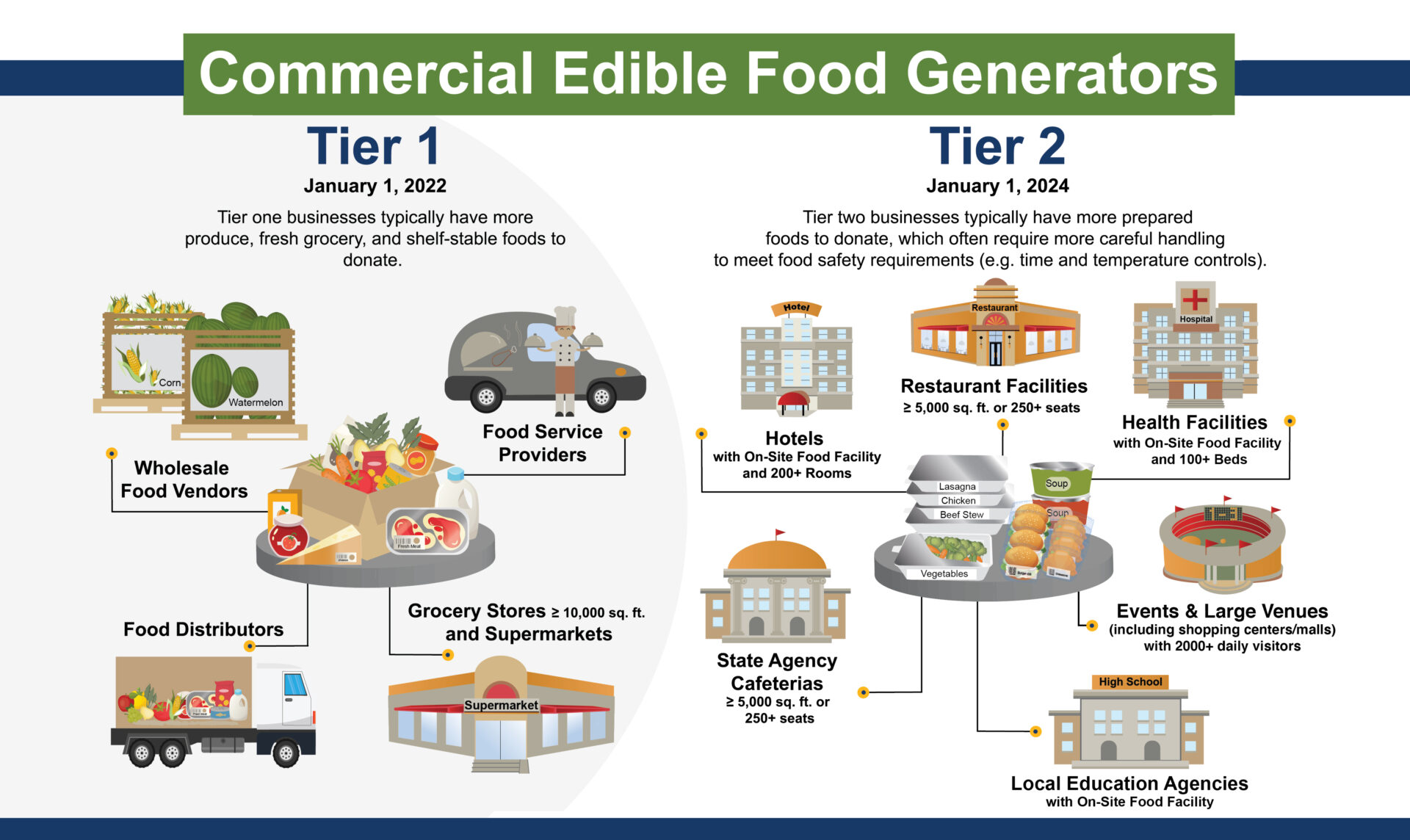
Find food recovery guidelines for donors on CalRecycle’s official SB 1383 food recovery page
The USDA states that up to 40% of food in the United States goes uneaten, while CalRecycle reports that food accounts for 18% of waste in California’s landfills. Through anaerobic decomposition, this waste produces the second largest source of human-related methane in California.
SB 1383 targets the statewide reduction of methane emissions from landfills, the 3rd largest source of methane in California. Approximately 30% of the material in landfills are recoverable organics, including green waste, food scraps, and food-soiled paper. Decomposing organics in landfills emit 20% of the state’s methane; a climate super pollutant up to 84 times more potent than carbon dioxide.
In addition, the USDA states that up to 40% of food in the United States goes uneaten, while CalRecycle reports that food accounts for 18% of waste in California’s landfills.
By diverting organics from the landfill, you are part of the solution in helping to protect the environment and future generations.
Compost is an important solution to support healthy soils, plants, and air quality. Soil holds more carbon than the atmosphere or plant life combined, but there has been a significant amount of loss due to human activities, such as construction and grading. The best method to return carbon to our soils is by applying carbon-rich compost. When Athens converts food scraps and yard waste into compost and it is applied back to our soil, the carbon becomes “sequestered” in our soils and can last for years. This carbon sequestration literally works as a filter to help cleanse and enhance our air quality.
Athens is here to help you navigate these new requirements and support the community.
Learn more about SB 1383 regulations and compliance at CalRecycle’s official SB 1383 resource page
Visit our Outreach Materials page for container signage and additional resources.
Need more educational tools like posters, signage, or sorting guides?
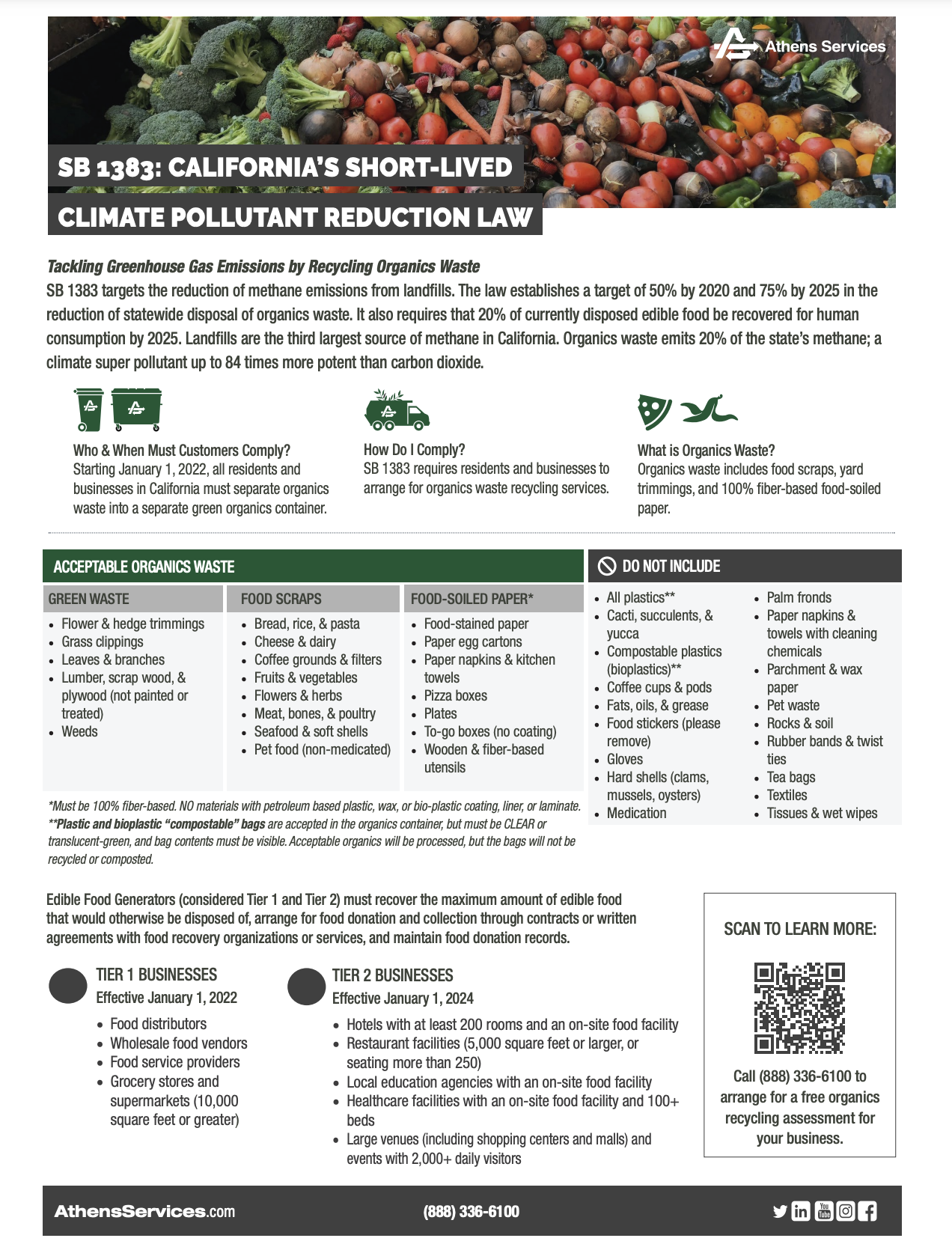
As part of the outreach efforts for Senate Bill 1383, property owners/managers for commercial businesses (including multi-family dwellings) must, “Annually educate employees, contractors, customers, and tenants on how to properly sort organics waste into the correct bins.”
Feel free to use the following examples for multi-family dwellings.
For properties in cities that require separate containers for organics and mixed recycling/trash.
For properties in cities that require three separate containers for organics, recycling, and trash.
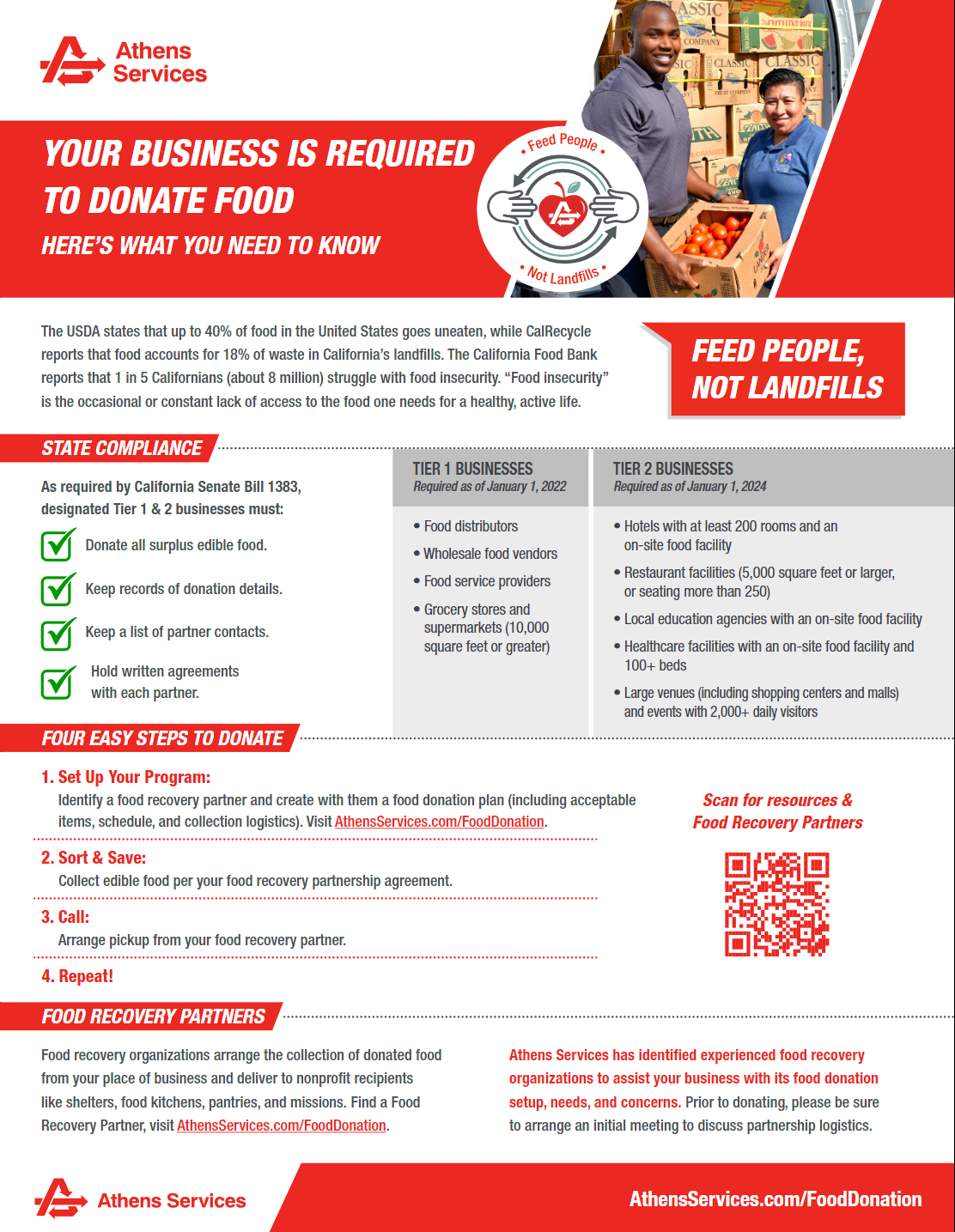
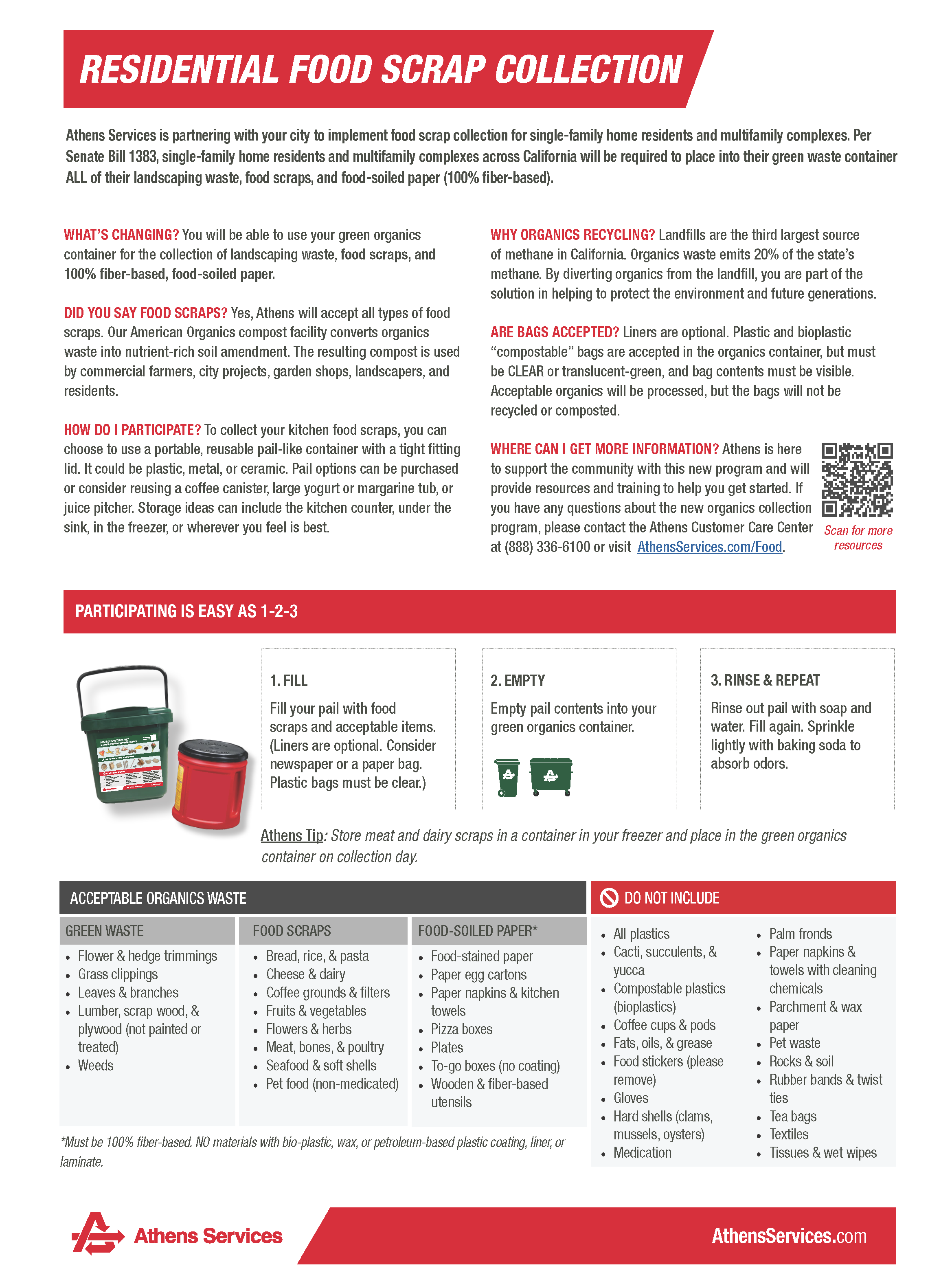
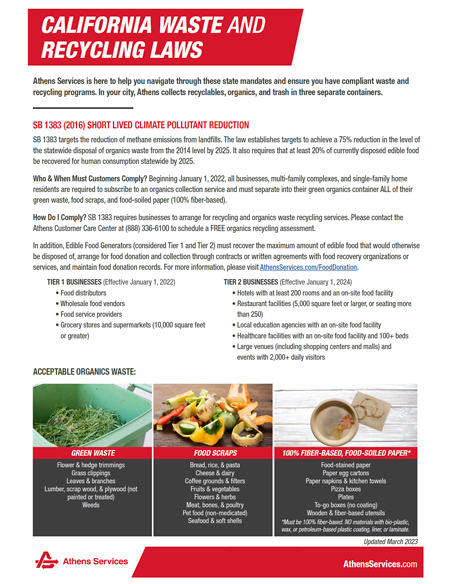
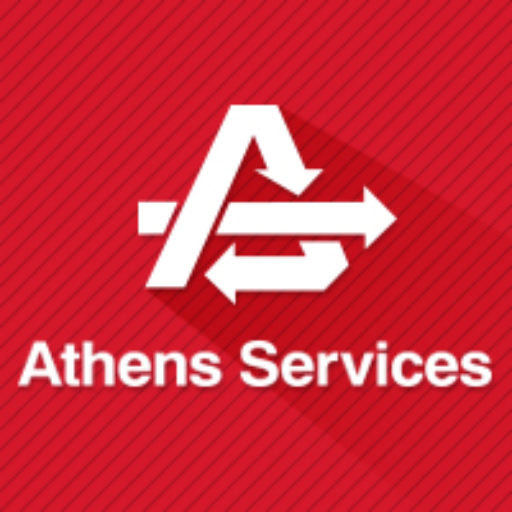
We use cookies to collect anonymous data about how our site is used and to support features from our trusted partners. This helps us improve your experience. We never sell your data.
If you wish to opt-out, select the X at the top right.
Copyright (C) 2026 Athens Services. All Rights Reserved.
